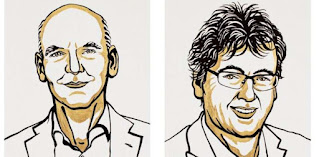New study sheds light on molecular motion

Molecular motion image. Credit: University of Nottingham New research has shown how a synthetic self-made fibers can guide molecular movement that can be fuelled by light over long distances, a discovery that could pave the way for new ways to use light as a source of sustainable energy. Researchers from the University of Nottingham have for the first time used a path of assembled molecules liquids that traveling molecules can be propelled along by light. The research 'Light-controlled micron-scale molecular motion' has been published today in Nature Chemistry. Professor David Amabilino from the School of Chemistry at the University of Nottingham is one of the lead researchers, he explains: "In living organisms, molecular motors travel along specific molecular paths, it is an essential part of cell function. We have shown that a synthetic self-made molecular fiber in a liquid behaves like a path for the movement of a molecular traveler over a distance 10,000 tim...
